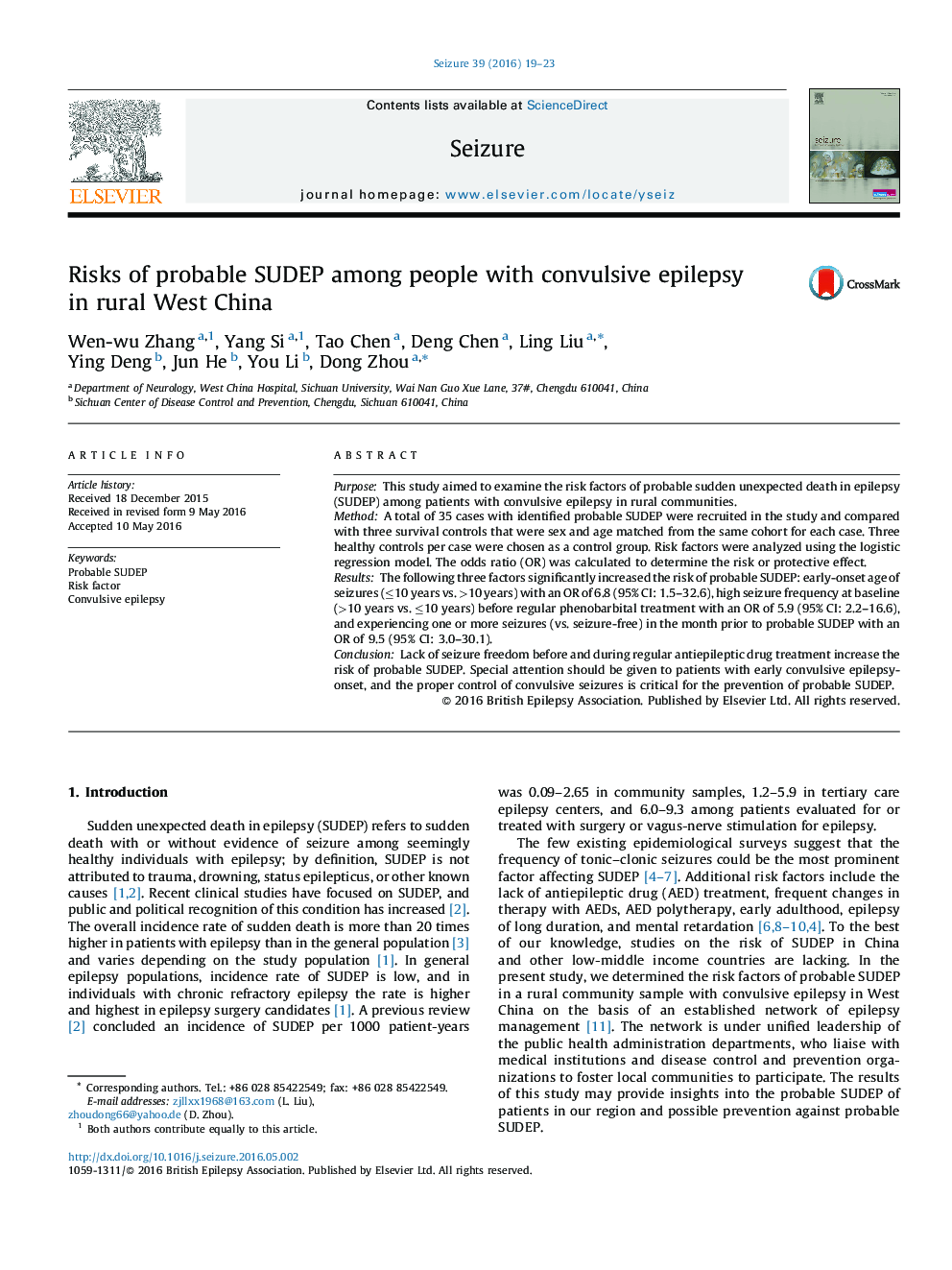| Article ID | Journal | Published Year | Pages | File Type |
|---|---|---|---|---|
| 340425 | Seizure | 2016 | 5 Pages |
•Lack of seizure freedom increases risk of probable SUDEP in rural China.•Early epilepsy-onset age is associated with probable SUDEP in rural China.•Control of convulsive seizures is important for the prevention of probable SUDEP.
PurposeThis study aimed to examine the risk factors of probable sudden unexpected death in epilepsy (SUDEP) among patients with convulsive epilepsy in rural communities.MethodA total of 35 cases with identified probable SUDEP were recruited in the study and compared with three survival controls that were sex and age matched from the same cohort for each case. Three healthy controls per case were chosen as a control group. Risk factors were analyzed using the logistic regression model. The odds ratio (OR) was calculated to determine the risk or protective effect.ResultsThe following three factors significantly increased the risk of probable SUDEP: early-onset age of seizures (≤10 years vs. >10 years) with an OR of 6.8 (95% CI: 1.5–32.6), high seizure frequency at baseline (>10 years vs. ≤10 years) before regular phenobarbital treatment with an OR of 5.9 (95% CI: 2.2–16.6), and experiencing one or more seizures (vs. seizure-free) in the month prior to probable SUDEP with an OR of 9.5 (95% CI: 3.0–30.1).ConclusionLack of seizure freedom before and during regular antiepileptic drug treatment increase the risk of probable SUDEP. Special attention should be given to patients with early convulsive epilepsy-onset, and the proper control of convulsive seizures is critical for the prevention of probable SUDEP.
